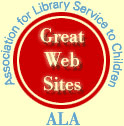
CRLS Research Guide
|
|
Using Search Engines
Tip Sheet 7dUsing Search Engines
Ask these questions:
What are they?
How do I use them?
1. The search engine you use
2. The way you enter your key words
3. How well you evaluate the information on a site
How can I best enter key words in a search engine?
A Quick Primer in Boolean Logic
Boolean logic simply is a way to link words and phrases together to ensure you get a list of sites that are valuable to you, so you don't waste a lot of time looking at sites that aren't useful.
(For you math fans, it is based on a mathematical logic concept which is related to Set Theory and was developed by French mathematician George Boole.)
It works like this.
You will use words called Boolean operators to link key words and phrases. These Boolean operators are:
AND, OR, and NOT.
When you want 2 or more key words to be searched together as a phrase, you usually must put quotations around that phrase.
example "Harlem Renaissance"
How can I use these Boolean Operators to make good searches?
Is your list of relevant hits too big? To get fewer hits, try one or both of the following:
1. If you are getting too many unwanted hits, limit your search by linking your key words with the phrase AND (some search engines use the plus '+' sign instead). This will ensure that the words on either side of the AND are in all of the sites on your hit list.
example
If you want AIDS statistics in France, type:
AIDS AND France AND statistics
or try
AIDS + France + statistics
2. If you are getting sites that include related words that you don't want, use the word NOT (some search engines use the minus '-' sign instead) before a word to exclude sites with those words.
example
If you want sites on the Renaissance in Europe, but you keep getting sites on the Harlem Renaissance, type:
Renaissance NOT Harlem
or try
Renaissance - Harlem
Is your hit list too small, or you get no hits at all? Try using the word OR between related words or synonyms.
example
AIDS OR HIV AND France AND Statistics
You see that you can combine the Boolean operators into a long string of linked words and phrases. Experiment with this so that you can upgrade your web searching skills.
How can I evaluate the information I find on websites?
1. Reliability of the author (Is there a way to contact them? Are they an expert in their field?)
2. Accuracy of the information (How does the information compare to reliable information you have already found in encyclopedias, books, or periodical articles - all of which have been written or edited by an expert?)
3. Bias of the author/site (Is there a motive in creating this site other than simply giving you information? Do they want to buy something, take something, do something? Know what the authors motive is.)
4. Currency of the site (When was it last updated? In some cases, you want to avoid outdated information.)
5. Ease of navigation (How easy is it to get around on the site? Professionally made sites are usually easy to navigate.)



